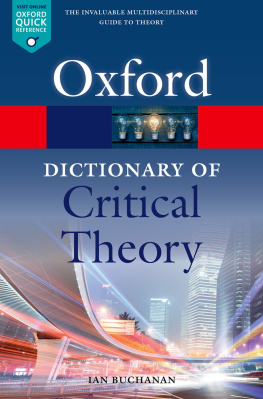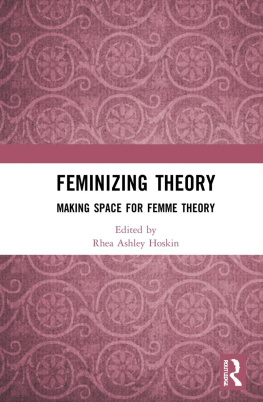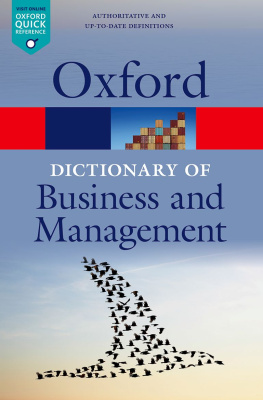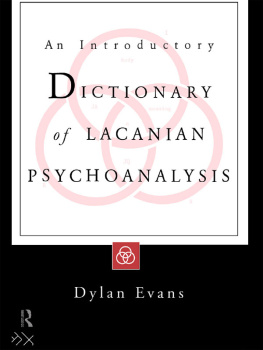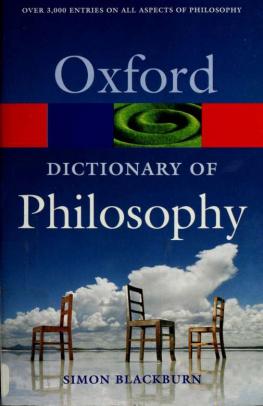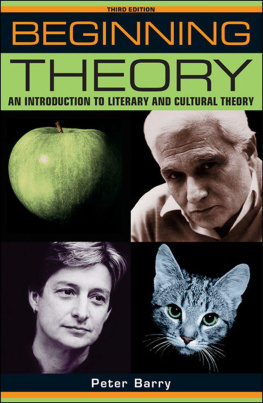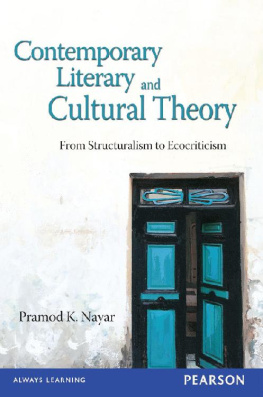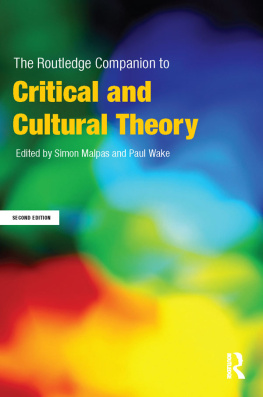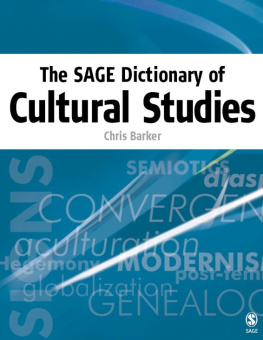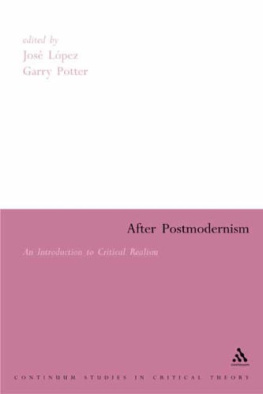While most e-readers can display special characters (such as and ), many cannot search for words containing them, unless the special characters themselves are typed into the search box. If you are unable to type these characters, please browse for your term using the .
A Dictionary of
Critical Theory
Ian Buchanan is Professor of Cultural Studies at the University of Wollongong. He is the author of Readers Guide to Deleuze and Guattari ( 2007 ), Fredric Jameson: Live Theory ( 2006 ), Deleuzism: A Metacommentary ( 2000 ), and Michel de Certeau ( 2000 ).

For recommended web links for this title, visit
www.oxfordreference.com/page/crittheory when you see this sign.

Great Clarendon Street, Oxford, OX2 6DP, United Kingdom
Oxford University Press is a department of the University of Oxford. It furthers the University's objective of excellence in research, scholarship, and education by publishing worldwide. Oxford is a registered trade mark of Oxford University Press in the UK and in certain other countries
Oxford University Press 2010, 2018
The moral rights of the authors have been asserted
First published in 2010
Second edition 2018
All rights reserved. No part of this publication may be reproduced, stored in a retrieval system, or transmitted, in any form or by any means, without the prior permission in writing of Oxford University Press, or as expressly permitted by law, by licence or under terms agreed with the appropriate reprographics rights organization. Enquiries concerning reproduction outside the scope of the above should be sent to the Rights Department, Oxford University Press, at the address above
You must not circulate this work in any other form and you must impose this same condition on any acquirer
Published in the United States of America by Oxford University Press 198 Madison Avenue, New York, NY 10016, United States of America
British Library Cataloguing in Publication Data
Data available
Library of Congress Control Number: 2017959943
ISBN 9780198794790
ebook ISBN 9780192514219
Links to third party websites are provided by Oxford in good faith and for information only. Oxford disclaims any responsibility for the materials contained in any third party website referenced in this work.
For my father, John Buchanan (19302015)
It is a sign of the health and vitality of the field of critical theory that in the decade since I wrote the first edition of this dictionary so much new research and so many new voices have emerged. In this new edition I have taken advantage of the new research to add both detail and nuance to existing entries and tried to include as many of the new and urgent voices as I could. Inevitably gaps remain in the entries, though I am happy to say there are fewer of them in this edition than in the previous one. Part of the reason there are gaps is that the field itself is almost impossible to circumscribe and wherever the boundaries appear, they never seem to hold for very long before someone challenges them and redraws the map. Meanwhile a dictionary like this is stuck with the old map. To that end I have tried to anticipate what the new maps might look like by including emergent concepts and theorists alongside the more well-established ones. As with the previous edition, I have tried to write the entries in such a way that specialist knowledge is not required to read them. Where that is not possible, I have cross-referenced them so that one can work backwards to a more straightforward starting point. Lastly, I have dedicated this new edition to the memory of my father, who died before I finished work on it. I still have his copy of the first edition, which is underlined throughout, with comments and queries in the margins. It is a cherished reminder of a man who taught me to love reading and to never accept anything at face value. As an avid autodidact, he thought of learning as both a privilege and a duty. I hope something of his spirit of inquiry lives on in this book.
Writing a dictionary is a strange and complicated task. It is strange because as a form of writing it is governed by criteria not of the writers own making. It is complicated because deciding just what terms it should define isnt always as straightforward as one might expect. I suspect critical theory has leakier borders than most disciplines, not least because at its origins it is a hybrid of history, philosophy, psychoanalysis, and sociology. Its interdisciplinary beginning has led only to more not less interdisciplinarity as the field has grown, which is of course one of the reasons why a dictionary like this is necessary.
Somewhat arbitrarily I have set the borders in such a way as to limit the overlap between the Oxford Dictionary of Critical Theory and its stablemates, the Oxford Dictionary of Literary Terms and the Oxford Dictionary of Philosophy . There are cases though where I have felt it necessary to include some of the same terms these other two dictionaries cover either because critical theory has borrowed from these disciplines and used the terms in a new or expanded way, or because critical theory was in fact the point of origin of the terms.
In writing the individual entries I have tried as far as possible to anticipate the inevitable question of what does a particular concept do? by giving examples of it in action. Although I have tried to be as comprehensive as possible in all entries, I have also tried to keep them simple and straight to the point. I hope the inevitable loss of detail this sometimes entails is worth it in terms of enhanced usability. There seemed to me no point in providing entries that were so dense they left the reader in need of still another dictionary to decode them. My hope is that this dictionary will serve as a stimulating starting point (not an end point!) for its readers.
Lastly, I must thank my family Tanya, Courtney and Sebastian for enduring the writing of this dictionary for over two years. No family should have to put up with that much grumpy reclusiveness.
Ian Buchanan
Cardiff, October 2009
.
Further Reading: B. Creed The Monstrous Feminine: Film, Feminism, Psychoanalysis (1993).
J. Kristeva Powers of Horror: An Essay on Abjection (1982).
, on which she models it, seeks to expose the underlying assumptions and prejudices guiding the depictions of Indigenous Australians made by white Australians. Moreover, it is concerned to show the real-world effects these depictions have in shaping policy and hence the daily lives of Indigenous Australians.

